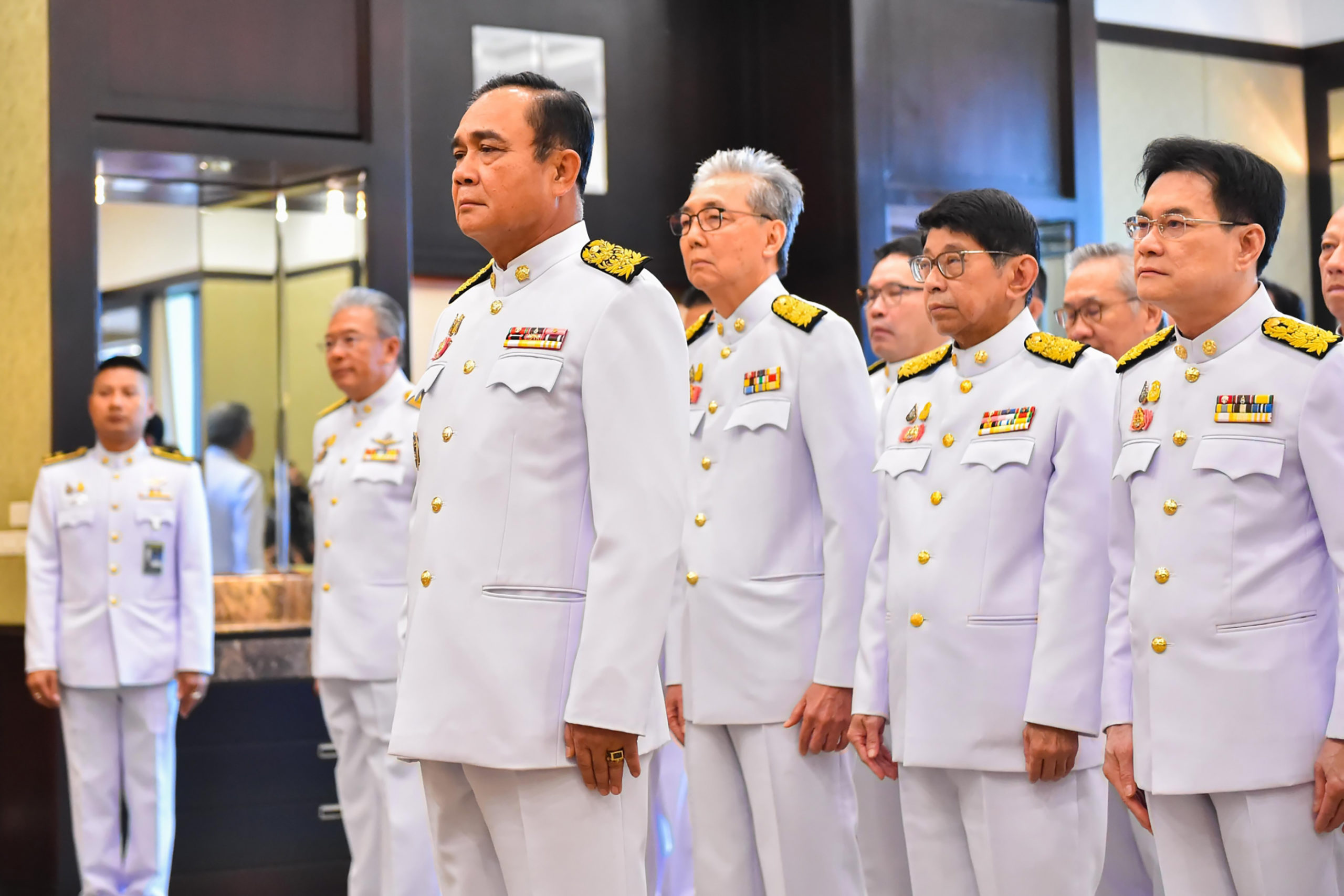Even though she knew it wouldn’t change much, democracy activist Chonthicha Jangrew remains happy she was able to cast her vote in Thailand’s first election since 2011, as well as the first following the 2014 Prayut Chan-ocha-led military coup.
“The election is the only way I can express my voice, my rights,” she said, looking back on the March contest. “It’s the only way for Thai people to say we don’t want dictatorship, to feel we are the owners of the country again.”
Chonthicha, 26, had just left a late-November UN-facilitated democracy workshop held in a courtyard of a Bangkok hotel. She was casual as she recounted her trials since Thailand’s 2014 military coup swept away the civilian government, rewrote the national Constitution and, until last spring, put a halt to the electoral process.
But the events before, during and since the latest election now only seem further proof of the battered state of Thai democracy.
Just two days before the November workshop, the Constitutional Court of Thailand – a judicial body with the power to rule on the appointment and removal of public officials – had barred upstart progressive politician Thanathorn Juangroongruangkit, 40, from taking his seat in Parliament on controversial charges.
The development was just the latest in a political system critics say is rigged to support the military junta no matter what. And for activists like Chonthicha, it also fit into a wider conflict broiling Thai society, which she believes has been ignored by an international community that still predominantly views the country as simply an attractive tourism and investment destination.

The police and the military have come to my home, and in only five years it’s been more than 50 times already … they call my mom to check if I’m still working on political issues
Thai democracy activist Chonthicha Jangrew
Chonthicha didn’t sugarcoat the situation.
“Human rights in Thailand are in crisis,” she said.
The March elections were the first since the latest military coup in 2014, which itself was only one of 13 successful and nine attempted coups since the Thai monarchy officially began its move towards democracy in 1932. Like its predecessors, this coup swept aside the civilian government and installed a military one with Prayuth – then-Commander in Chief of the Royal Thai Army – as prime minister.
Along with structural changes, the new junta government also enacted a campaign of “attitude adjustment” aimed at chilling any dissent, from ordinary Thais to journalists and civil society members.
As with many Thai activists, Chonthicha’s work soon landed her in a never-ending spiral of official accusations, court appearances, and intimidating check-ins by the authorities. She even received death threats after someone photoshopped her face into an image insulting the Thai king, a violation of the country’s strict lèse-majesté laws.
Since the 2014 coup, she’s been imprisoned and targeted with seven legal cases – including a sedition charge in which Thanathorn is a co-defendant – filed over infractions related to protests and demonstrations. Nonetheless, she continued her work with the Democracy Restoration Group, a collection of activists who support a platform of free expression and assembly in Thailand.
Often, she says, a case will be dropped in one court only to be picked up by another. And the legal fighting might not be the worst part.
“The police and the military have come to my home, and in only five years it’s been more than 50 times already,” Chonthicha said. “Even now they have the contact for my mom, so they call my mom to check if I’m still working on political issues.”
As aggravating as the legal cases are, it’s the cases that don’t go to court that may be the most dangerous.
Whether it comes at the hands of vigilantes or officials, violence against activists is not uncommon. Vicious reprisals even meet those Thais who flee the country looking for safe haven, such as the six Thai activists based in Laos who have disappeared in the past year alone.
Last summer, three of them surfaced in the grimmest way imaginable – washing lifelessly ashore on the banks of the Mekong, corpses battered, bound, disemboweled and filled with concrete.
These kinds of examples aren’t far from mind for activists like Chonthicha, but it doesn’t stop their work. It also lends a certain cache to Thanathorn’s Future Forward Party (FFP) movement, which attracted the ire of the junta after it repeatedly vowed to end the military draft, rewrite the constitution and prosecute military leaders involved in the coup in the lead up to March’s election.
Those messages were only amplified among voters by the junta’s resistance to them.
Chompunut Chalieobun is a representative of the We Watch Thailand volunteer election monitoring group and an affiliate of the Bangkok-based Asian Network for Free Elections. Even with a new party on the block, she says there was a mixed mood leading up to the election.
“There were those who were excited about it, but then there were those who also didn’t believe the election would bring change, because politics are pretty much controlled by the military anyway,” Chompunut said. “But there was excitement for Future Forward, they tried to break away from the coloured shirt movement and bring out the spirit of young people in politics.”

The coloured shirt movement refers to the two camps that have historically dominated Thai politics, pitting the red-shirted defenders of Thaksin Shinawatra, and then his sister Yingluck, against the yellow-clad supporters of the junta and monarchy.
By attempting to leave that dynamic behind, Chompunut said, FFP came to represent a new kind of opposition against the status quo – especially as the junta government stepped up rhetorical attacks against the party in the lead-up to March’s election. She said enthusiasm for FFP continued to build as allegations against the military of election irregularities started popping up around the country during the advance voting period.
“That last week was what stirred up people to become volunteers and follow this election, because they already expected a lot of fraud,” Chompunut explained.
While FFP initially targeted the youth vote through a social-media-heavy outreach campaign, they made a surprisingly strong showing among the general electorate, winning 80 seats of the parliament’s 500 total. That put them in third behind the anti-junta, red-shirt Pheu Thai Party, stronghold of Shinawatra, and Palang Pracharat, the junta’s proxy in the legislature.
If the vote was a success for the upstart party, the aftermath filed a swift rebuke.
Just a week after the votes were tallied, Thanathorn was summoned for police questioning about an allegation stemming from a demonstration held four years prior.
The party leader posted the claims on social media, captioning his summons letter with: “When the dark power won’t leave Future Forward alone.”
“It’s clear now that the old-school political game won’t end after the election, but is only getting more intense, because they’re afraid of Future Forward,” he wrote.
Then came the Constitutional Court challenge that would ultimately strip him of his seat.
The push to block the billionaire former businessman draws its legitimacy from a claim that Thanathorn broke the law by failing to sell shares he owned in a publishing company called V-Luck Media before running for office.
That’s the first step, changing that attitude in Thailand. We need to go out in the street and show how much power we have
Thai democracy activist Chonthicha Jangrew
Though the would-be parliamentarian rejected the allegation and provided evidence of a sale one month prior to the deadline, his defence was dismissed by the court in a 20 November verdict, leaving Thanathorn, the party leader, without a seat in parliament.
After getting the news, he addressed supporters gathered outside the court to tell them the fight would go on. He also issued a statement to the press: “There is still plenty of work to do, such as amending the constitution and changing the military drafting process.”
The FFP isn’t alone in targeting constitutional reform.
Approved in 2017, the new constitution is one of 20 Thai charters and constitutions enacted since the democratic transition began almost 90 years ago. Critics say the new framework was designed as a barrier to democracy, pointing to glaring examples like the codified right of the Royal Thai Military to appoint all 250 members of the Senate, Thailand’s upper house.
Though the institutions tasked with enforcing the constitution insist on their political independence, they’re nonetheless seen by activists as a weapon against those who challenge the status quo.
For Chonthicha and others like her, the dissonance is a clear sign of all that’s wrong with Thai democracy. But given the tilt of the existing government, ballots like the 2019 election might not be enough to bring about true change.
“We need the mass demonstrations,” Chonthicha said. “That’s the first step, changing that attitude in Thailand. We need to go out in the street and show how much power we have.”


